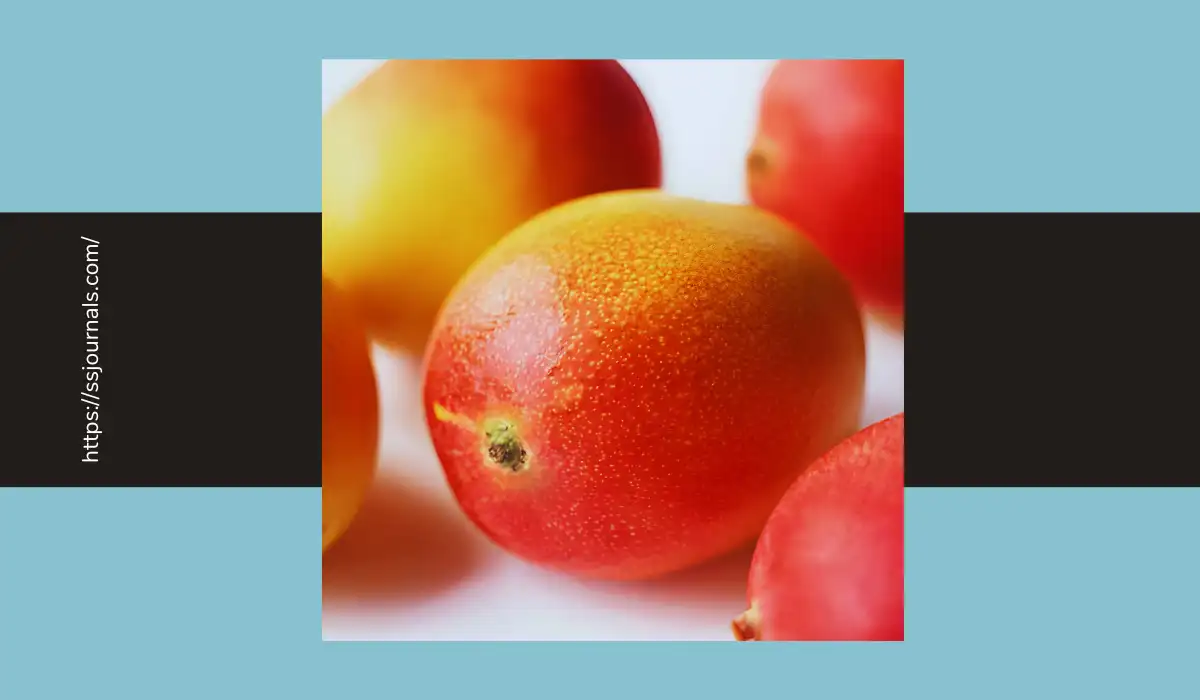Mangoes are sweet, juicy fruits that many people enjoy as a tasty snack or dessert. But some people wonder – is mango acidic? With rising rates of acid reflux and other digestive issues, it’s understandable to question if acidic foods like mango contribute to these problems. Does mango cause acidity?
When determining if a food is acidic or alkaline, we can look at its pH value. The pH scale ranges from 0 to 14, with lower values being more acidic and higher values being more alkaline.
An acidic food generally has a pH below 4.6. So where does mango fall on this scale? Is mango an acidic food? Or does mango alkalize your body?
This article will dive into the evidence to answer common questions about mango and acidity. We’ll explore the pH of mango, how it affects acidity in your body if it causes issues like acid reflux, and compare it to other acidic foods.
We’ll also give some tips for enjoying mango while managing acidity issues. Let’s uncover everything you need to know about this popular tropical fruit and acidity.
What Is the pH of Mango?

First, let’s start with defining the pH of the mango itself. The pH of a ripe mango falls between 3.3 and 6. So, Is mango acidic? Yes, according to the pH scale, mango can be considered acidic. However, it is less acidic than things like lemon juice or vinegar that fall below pH 3.
How Does Mango Affect Acidity in Your Body?
Just because a food is acidic itself does not necessarily mean it will cause acidity issues if consumed. Once metabolized, many foods can have an alkalizing effect on the body. So what about mango? Is mango acidic in the body?
Several sources suggest ripe mango can help alkalize the body once consumed instead of making you more acidic.
For example, one study in the Annals of Nutrition and Metabolism found that eating mango increased bases (alkaline compounds) excreted through the urine of healthy subjects.
So while the mango fruit itself has an acidic pH, compounds in mango may counteract its acidity once metabolized by the body. The vitamins, antioxidants, and enzymes in mango, specifically compounds like lactic acid and citric acid, seem to play a role here.
Can Mango Cause Acidity Issues Like Acid Reflux?
If mango has an alkalizing effect, could it still aggravate acid reflux or cause stomach issues? Generally, mild acids like citric acid or ascorbic acid (vitamin C) found in fruits are less irritating to the digestive tract than stronger acids. Compounds like fiber and antioxidants in fruits can be beneficial for digestive issues.
So evidence suggests ripe mango is generally fine for those concerned with acidity issues:
- One study found that mango did not reduce lower esophageal sphincter pressure or cause acid reflux symptoms, even in susceptible individuals.
- Other research suggests antioxidants like mangiferin in mango may provide gastroprotective effects by decreasing gastric damage.
So while individual tolerances vary, mango is often considered one of the safer fruits for acid reflux diets. Of course, anyone with chronic digestive issues should discuss their diet with their doctor. But mango is less likely to aggravate issues compared to highly acidic foods.
How Does Mango Compare to Other Acidic Foods?
To put mango’s acidity in perspective, let’s compare it to some other acidic foods:
- Vinegar: White vinegar is very acidic, with an average vinegar pH of around 2.4, making it more acidic than lemon juice. No studies have looked directly at mango vs. vinegar and digestion. But vinegar’s high acidity can irritate the esophagus and stomach lining.
- Lemon: Lemons contain citric acid and ascorbic acid, giving them a very low pH below 2. While vitamin C may have benefits, lemon juice can irritate the digestive tract. One study found lemon juice decreased lower esophageal pressure and worsened heartburn.
- Coffee: Coffee is mildly acidic, with a pH around 4.5. Evidence on coffee and digestion is mixed – coffee acidity can aggravate reflux, but compounds like chlorogenic acids may also have benefits. Moderate coffee intake is often still tolerated in acid reflux diets.
Is mango acidic? As you can see, Mango is less acidic than many problematic foods like lemons or vinegar. It’s more comparable to something like coffee. So while individual tolerance varies, mango is less likely to aggravate acid reflux or digestion issues than more highly acidic foods.
Tips for Managing Acidity When Eating Mango
Here are some tips for incorporating mango into an acid reflux diet:
- Stick to ripe mango: Unripe, green mangoes are more acidic, so wait until mangoes are ripe and sweet.
- Enjoy mango in moderation: Large servings of any fruit, even non-acidic ones, could worsen reflux. Stick to standard servings.
- Avoid pairing mango with problematic foods: Don’t eat mango soon after meals that trigger your reflux.
- Take note of your tolerance: Monitor symptoms to see if a specific amount of mango bothers your digestion.
- Consider a low-acid diet if needed: Work with a doctor or dietitian to structure an elimination diet that meets your needs.
Conclusion
When it comes to fruits, acid reflux diet lists don’t have to be boring. Mangoes can be a safe fruit to incorporate for those watching their acidity intake.
While mangoes themselves have an acidic pH below 4.6, compounds in mangoes appear to counteract this acidity once metabolized in the body. Eating mango may have an alkalizing effect.
Research suggests ripe mango is less likely to provoke acid reflux or digestion issues compared to more highly acidic foods like lemons or vinegar. Mango provides beneficial nutrients and antioxidants that may even defend against gastric irritation.
Of course, individual sensitivity varies quite a bit with acid reflux diets. Pay attention to your tolerance. But for most people, enjoying ripe mango in moderation is unlikely to aggravate acidity issues – and it makes for a nice, sweet addition to an elimination diet!
Does this give you the insights you need on mangoes and acidity? What other fruit acidity questions would you like to have answered? Let me know in the comments!

